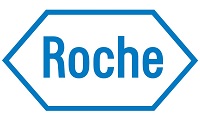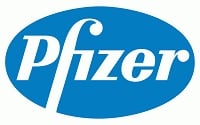 The curtain has been raised on the first act of the annual cancer drug lollapalooza at ASCO, with the first round of abstracts spotlighting a series of early winners and at least one big loser: Puma Biotechnology ($PBYI).
The curtain has been raised on the first act of the annual cancer drug lollapalooza at ASCO, with the first round of abstracts spotlighting a series of early winners and at least one big loser: Puma Biotechnology ($PBYI).
Puma's breast cancer drug neratinib managed to eke out only a slight advantage over a placebo. Scoring the percentage of women who were free of invasive disease, the neratinib group hit 93.9% compared to 91.6% in the placebo arm. Analysts did a double take on the meager 2.3% difference and quickly turned thumbs down on the data, especially as several of them were looking for a much clearer distinction.
Puma's shares plunged about 20% overnight, which Forbes' Matthew Herper estimates cost CEO Alan Auerbach about $250 million of his personal fortune.
Investors may have been more accepting of the results of neratinib wasn't tied to a harsh side effect. About four out of 10 patients in the drug arm experienced severe diarrhea, which will likely have many physicians looking to think twice before prescribing it--provided it can win an approval. Puma got this drug from Pfizer, which outlicensed the therapy. Forbes
 Roche reports promising results for two 'breakthrough' cancer drugs
Roche reports promising results for two 'breakthrough' cancer drugs
Roche ($RHHBY) will be traveling to ASCO at the end of this month with a pair of positive readouts for top cancer drug prospects. The pharma giant notes that its ALK-positive non-small cell lung cancer drug alectinib scored well in two studies, while
Investigators reported that alectinib, which has won breakthrough drug status at the FDA, shrank tumors in about half of the drug groups recruited for two trials. For patients whose cancer had metastasized into the central nervous system, the response was an even more impressive 69%.
That sets up the drug for a near-term application to the FDA with a solid shot at an approval.
"Cancer spreads to the brain in about half of people with ALK-positive lung cancer, and these studies suggest that alectinib can shrink tumours in people with this difficult-to-treat disease," said Sandra Horning, CMO and head of global product development. "We plan to submit these data to the FDA this year to support alectinib as a potential new option for people whose advanced ALK-positive lung cancer progressed on (Xalkori) crizotinib."
Xalkori sales have been on the upswing, but Roche sees an opportunity here as the drug is known for losing effectiveness after an initial response. Another ALK inhibitor in the mix is Novartis's Zykadia.
You can also expect to hear plenty more about PD-1 and PD-L1 at ASCO. Roche previewed some interim results form a Phase II study of MPDL3280A that showed the PD-L1 contender "doubled the likelihood of survival (overall survival [OS]; HR=0.47) in people whose cancer expressed the highest levels of PD-L1 (programmed death ligand-1) compared with docetaxel chemotherapy."
Roche's whole business model is built around biomarkers, so it's no surprise that the results were welcomed by Horning.
"In our study of MPDL3280A in previously treated lung cancer, the amount of PD-L1 expressed by a person's cancer correlated with improvement in survival," she said. "The goal of PD-L1 as a biomarker is to identify people most likely to experience improved overall survival with MPDL3280A alone and which people may be appropriate candidates for a combination of medicines."
MPDL3280A also scored a breakthrough drug designation at the FDA, likely pointing the way to a shorter approval pathway for this high profile therapy. Roche has ambitious plans for this drug, with a slew of late-stage studies aimed at determining its full potential in oncology. Release | Release
 Bristol-Myers' elotuzumab (kind of) impresses in PhIII
Bristol-Myers' elotuzumab (kind of) impresses in PhIII
Bristol-Myers Squibb ($BMY) has high hopes for elotuzumab, an antibody that's being tested for multiple myeloma in collaboration with AbbVie ($ABBV). In the late-stage study the drug, combined with Revlimid and dexamethasone, spurred an improvement in progression free survival of 4.5 months--19.4 months in the drug arm compared to 14.9 months for the standard therapy approach.
The drug works by binding to SLAMF7, a surface protein found on myeloma cells as well as immune cells, providing what Bristol-Myers hopes will be a one-two punch: Targeting myeloma cells directly and then spurring a natural killer cell attack on the cancer as well.
It appears that, for patients with relapsed multiple myeloma who would otherwise be offered lenalidomide and dexamethasone, addition of this new targeted drug makes the outcomes even better," said lead study author Sagar Lonial, CMO of the Winship Cancer Institute of Emory University. "It was particularly striking that the difference between the elotuzumab and control groups seems to get bigger over time, which really speaks to the power of this immune-based approach."
Leerink came up with a soft compliment for Bristol-Myers Squibb's elotuzumab, calling the cancer drug data "solid but not striking" for a progression free survival benefit of 4.5 months. That's good enough for an approval, particularly without any red flags on the safety side, but Bristol-Myers is not working alone here. Amgen reported a couple of months ago that its drug Kyprolis handily beat out Velcade in a head-to-head myeloma study. And analysts are paying close attention to the data to see which drug emerges as the strongest contender.
More info is expected from a second Phase III study of elotuzumab that's still underway and right now the focus is on which drug will provide the best survival benefit. Release
 Pfizer touts some early positives in PF-3922 lung cancer study
Pfizer touts some early positives in PF-3922 lung cancer study
Pfizer ($PFE) got a shout out from Reuters from some very (very) preliminary data on its early-stage cancer drug PF-3922, designed to help lung cancer patients who no longer respond to Xalkori. Investigators touted some signs of efficacy in the dose-ranging Phase I study. Six of 15 patients had partial tumor responses, providing an early indication of activity. "There's encouraging clinical activity despite that it's an early study," Ronit Simantov, head of medical affairs for Pfizer oncology, tells the news wire. Reuters